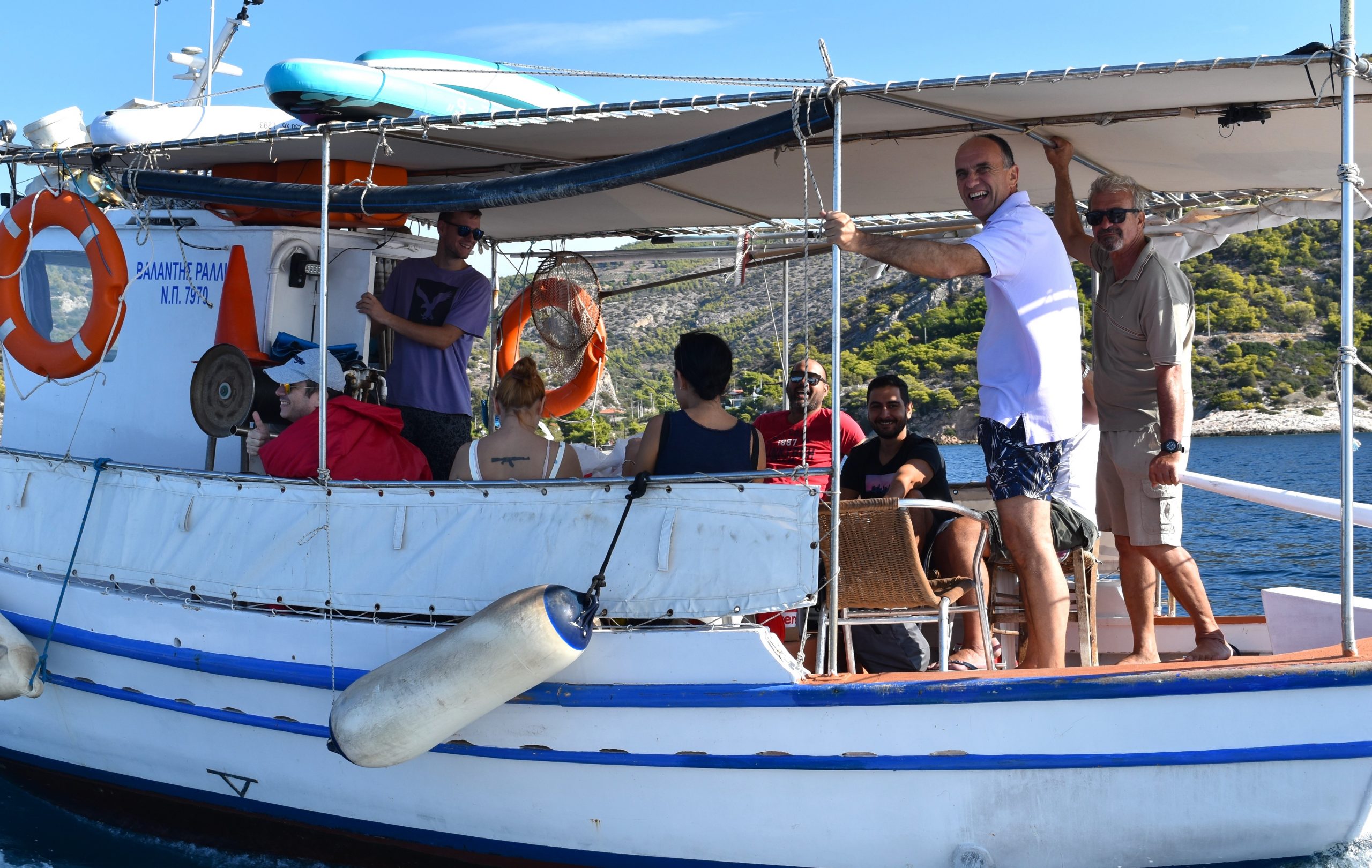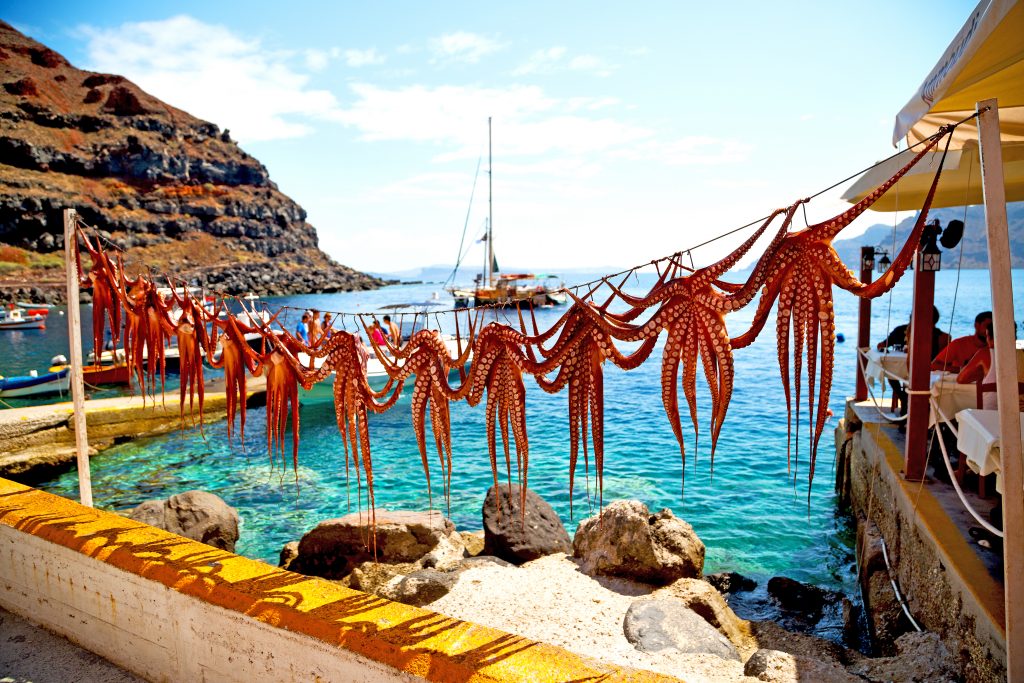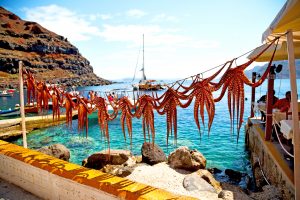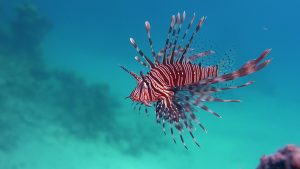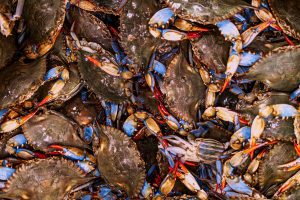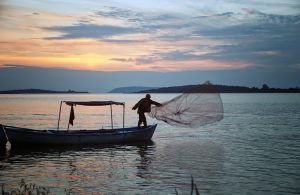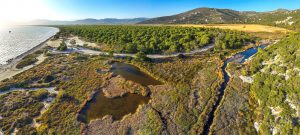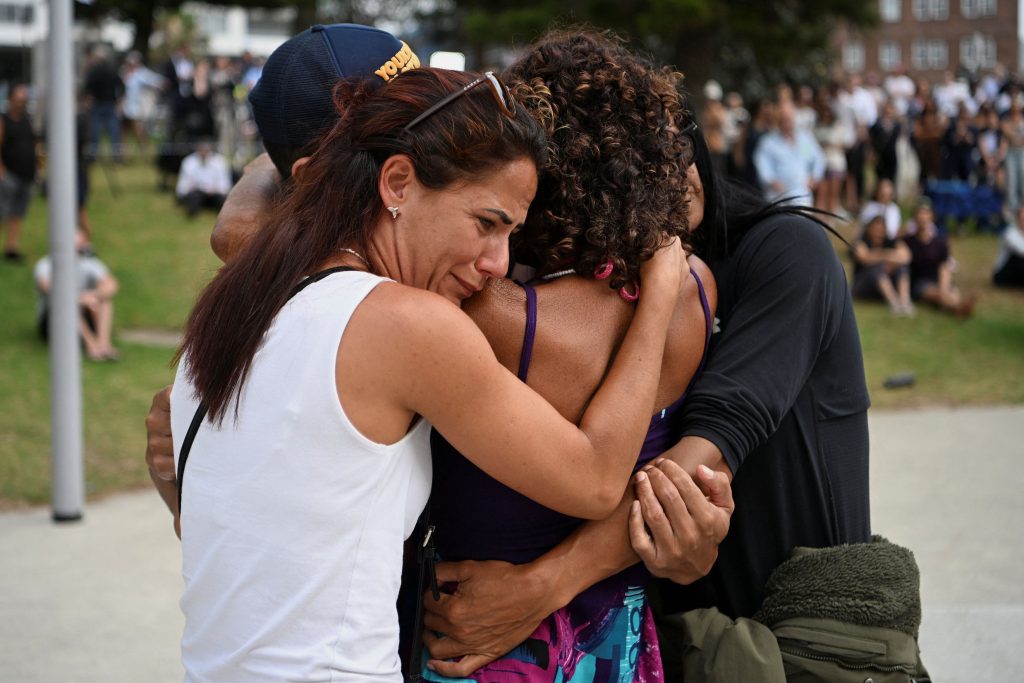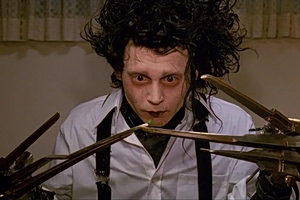Greece is home to the longest coastline in Europe and boasts boat-building and fishing traditions that go back to antiquity. Up until fairly recently, the country’s fishing fleet was among the largest in Europe. Despite this, Greece has yet to fully harness the immense potential of fishing tourism.
A 2015 law may have opened the door to licensing, but only 150 professionals in Greece currently hold licenses to offer fishing tourism experiences, which can include fishing boat trips, tourist stays in fishers’ homes, and cooking locally caught fish.
This is changing as younger generations take the helm, bringing to the centuries-old profession, university-level education, a fresh outlook, and the priceless experience of their parents and grandparents.
To Vima International Edition spoke to three young professionals who share their vision and discuss steps being taken to establish Greece as one of the world’s leading fishing tourism destinations.
Fishing or Recreation?
One of the main problems affecting the industry is distinguishing between fishing tourism and recreational boating as well as between other forms of marine tourism or even fish farming.
Fishing tourism is an immersive experience offered only by professional fishers who take tourists out to sea onboard their boats, teach traditional fishing methods, and give travelers the chance to live like a local.
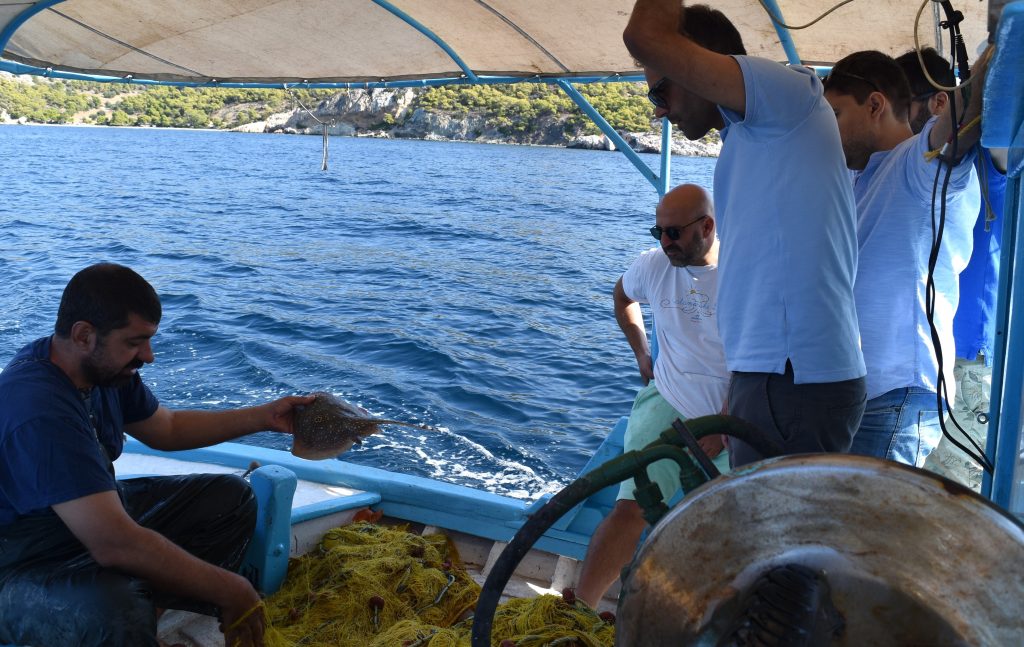
Photo: Fishing Trips
At the same time, it is a sustainable form of tourism with minimal environmental impact. According to the World Wildlife Federation (WWF), sustainable fishing tourism “ensures sustainable livelihoods of coastal communities in today’s overfished oceans” while offering an “alternative income stream which could reduce the intensity of fishing activities, contribute to sustainable management of fishery resources, and promote the cultural heritage of artisanal fishing”.
Fishing tourism also helps raise awareness about the marine environment, supports local economies, and helps preserve Greek heritage and culture while keeping fishing traditions alive.
So why is Greece still lagging behind?
Setting the Stage for Growth
A first step in the right direction was the creation in 2023 of the Panhellenic Association of Fishing Tourism for Professional Fishermen. “We had to protect fishing tourism from opportunists and non-professional fishers,” Antonia Vassiliou, the association’s president, tells To Vima International Edition.
Vassiliou, who is a fisher herself and co-owns “Michalis Fishing Tourism” with her husband, explains that by Greek law, only professional fishers can offer fishing tourism services. “That’s why an organization was needed which would work with the government and relevant bodies in order to create an operating framework that would protect people who made a living from fishing and who were professionals; who know the sea, the seasons, the fish, and can offer the authentic fishing experience”.
Bring More Fishers Onboard
The challenge, explains Vassiliou, is ensuring that anyone offering fishing tourism experiences is a professional fisher. At the moment, she explains, the lack of Recreational Fishing Licenses allows those with recreational boats to also offer fishing tourism, which, she add, is illegal. On top of that, she explains, port authorities have no jurisdiction to step in.
A key goal for Vassiliou is to see as many fishers as possible involved. According to the ministry’s Fisheries Directorate, 315 licenses have been granted so far but only 150 licensees are active in fishing tourism.
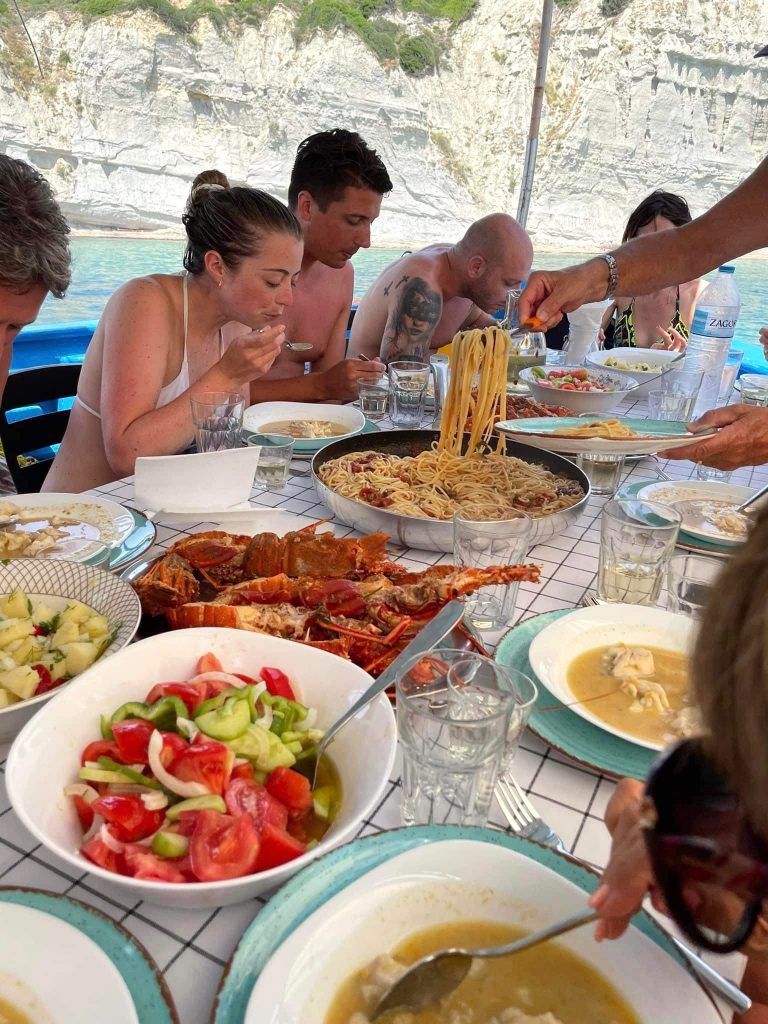
Photo: Panhellenic Association of Fishing Tourism for Professional Fishermen
Redefining Fishing
Fishing has always played an important role in Greek life and culture. Tourists visiting Greece love to eat fresh fish on a beachfront taverna and almost always take a photo of a colorful “kaiki” – the traditional, Greek wooden, fishing boat. Seeing younger people, and especially women like Vassiliou, in the profession is rare, and yet earlier this year, Konstantinos Lourdis, 25, and his 26-year-old sister Phaedra Lourdi were included in Forbes’ “30 Under 30” for 2025 recognized among the 30 young people in Greece shaping the country’s future through entrepreneurship, innovation, social contribution, and science.
The brother-and-sister duo currently run “Fishing Trips”, a company passed on to them by their father George Lourdis, who with passion and dedication took his father’s traditional fishing profession a step further.
The team has two goals: to put Greece on the map as an international fishing destination and to create the first-ever 100% accessible fishing boat.
“We have yet to fully realize what fishing tourism means for our country, what it offers our environment, our culture, and our economy,” they tell To Vima International Edition.
The Lourdis siblings echo Vassiliou adding that in addition to “embracing fishing tourism, encouraging professional fishers to get involved and promoting the tourism segment abroad are vital”.
Instead of dwelling on the reasons fishing tourism in Greece is still lagging behind the competition, which Konstantinos explains would be unfair to the hard work and efforts made in the last decade, he prefers to focus on the achievements.
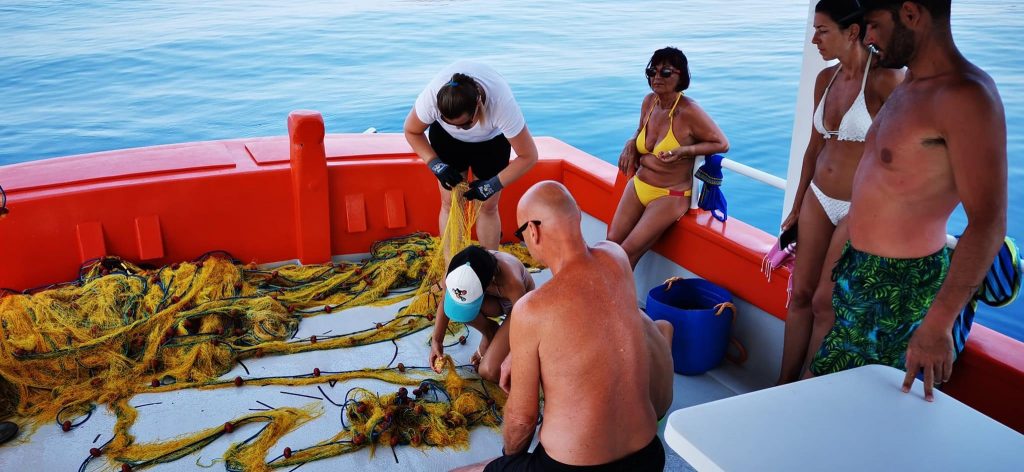
Photo: Panhellenic Association of Fishing Tourism for Professional Fishermen
“We’ve gone from 2012, when no one even knew what fishing tourism was; no legal framework or fishing tourism licenses, to talking about ‘Greece as an international fishing destination of choice’,” he tells To Vima International Edition.
First Ever Accessible Fishing Boat
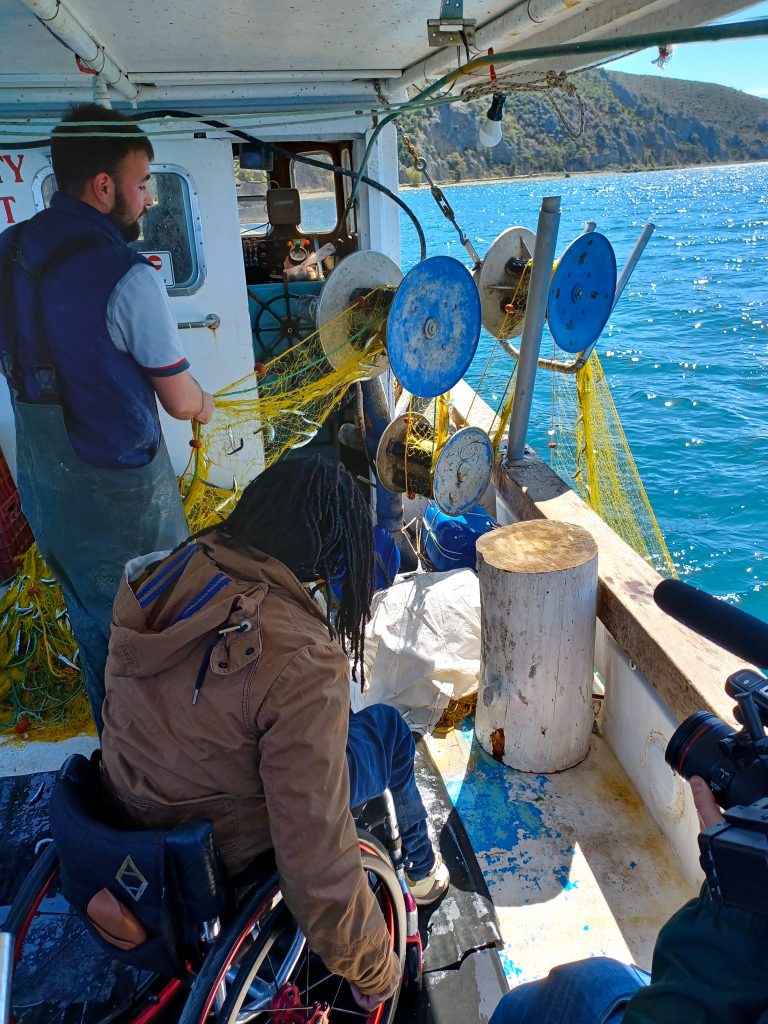
Photo: Fishing Trips
So what can two young people bring to an ancient profession that seems to be dying away?
“Extroversion, fishing is a science passed down from generation to generation, but never in its thousands of years has it disappeared, it simply adapts to the needs of the time. The same is happening now,” says Phaedra.
Konstantinos and Phaedra Lourdis have a vision: to make the experience accessible to more people. To do this they hope to create the first 100% accessible fishing tourism boat in the world which would also welcome on board people with disabilities.
In the eyes of Phaedra and Konstantinos who grew up going on fishing trips with their father and grandfather off Paralio Astros, a once tiny fishing village in the Peloponnese, developing fishing into a comprehensive tourism product requires hard work and above all lots love.
“Back then fishing was a way to make a living. Today, we in Greece are rebranding fishing, making it an ‘experience’, so accessibility should be a given,” Konstantinos says.
When asked about their inclusion in Forbes’ “30 Under 30” and whether recognition can accelerate their plans, they say it’s a sign they’re moving in the right direction.
Konstantinos and Phaedra believe that fishers in Greece offer the world’s best experiences and “many foreigners know this, so there is growing demand for such experiences”.
Through their company, which won the Piraeus’ Blue Growth contest for marine development in 2023 and the NTUA GreenTech Challenge 2023 for innovation, the siblings offer consulting services to fishers wishing to get involved in fishing tourism.
Protecting the Greek ‘Kaiki’ Boat
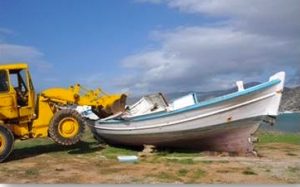
One of the most important reasons to strengthen fishing tourism, Vassiliou tells To Vima International Edition is “to stop the destruction of our traditional fishing boats, and thus our cultural heritage”.
It is reminded that a questionable EU law several decades ago, led many fishers in Greece who were seeing their incomes dwindle to sell their traditional handmade boats for scrap in exchange for subsidies. The Greek government failed to step in, resulting in thousands of wooden boats, works of art and a valuable part of Greece’s cultural and maritime heritage, ending up as scrap, many fishers abandoning the profession, and the craftsmen who built the boats without a job.
What’s more, says Vassiliou, expanding fishing tourism will boost lesser-known destinations in Greece and bring tourists year round, which is a tourism ministry priority.
A Unique Experience
Fishing trips in Greece include netting and rod fishing, cooking freshly caught seafood, and swimming in serene Greek waters. It’s more than just a day out at sea; it’s an authentic glimpse into a way of life steeped in tradition. By bringing innovation and sustainability into the mix, the next generation is ensuring that fishing tourism not only preserves Greece’s heritage, it also paves the way for a promising future.
